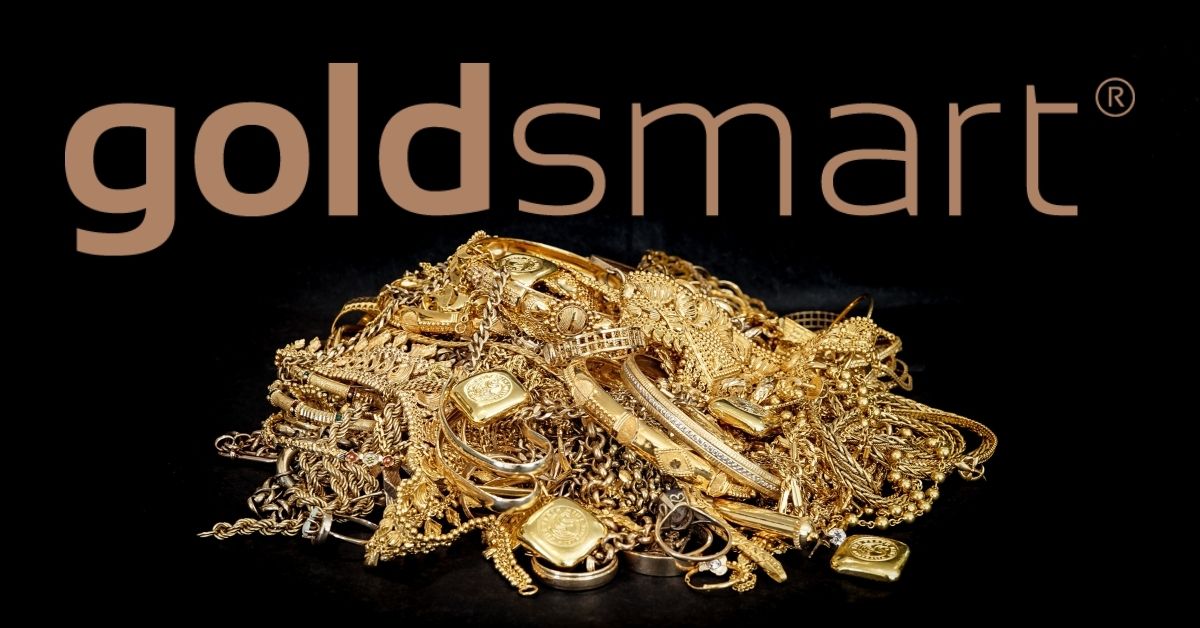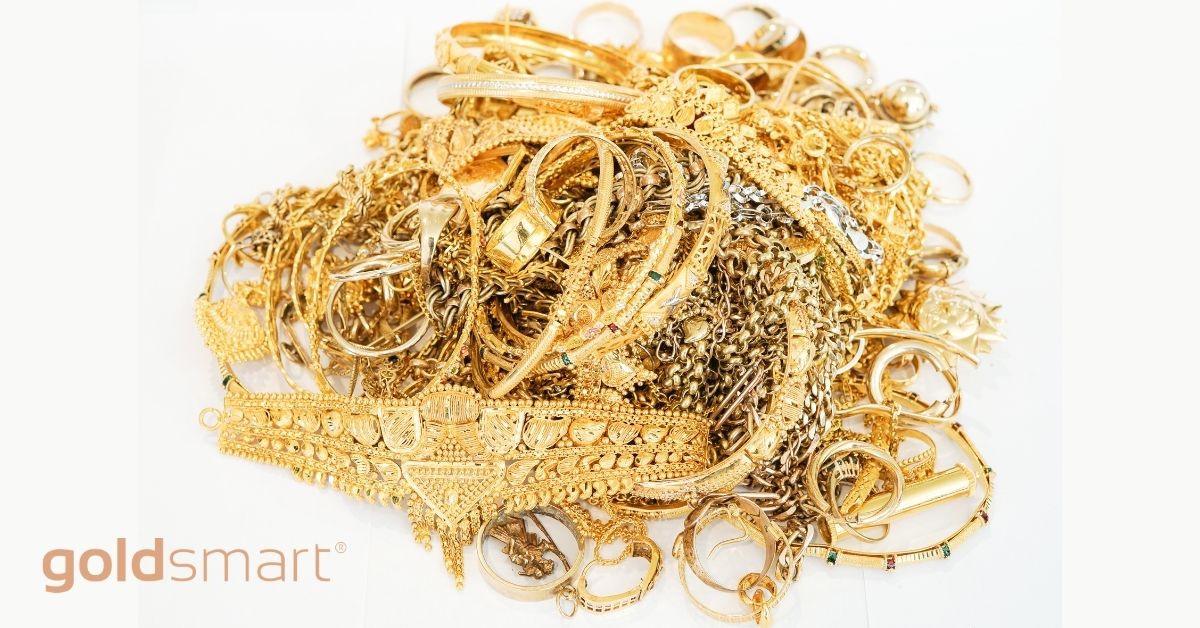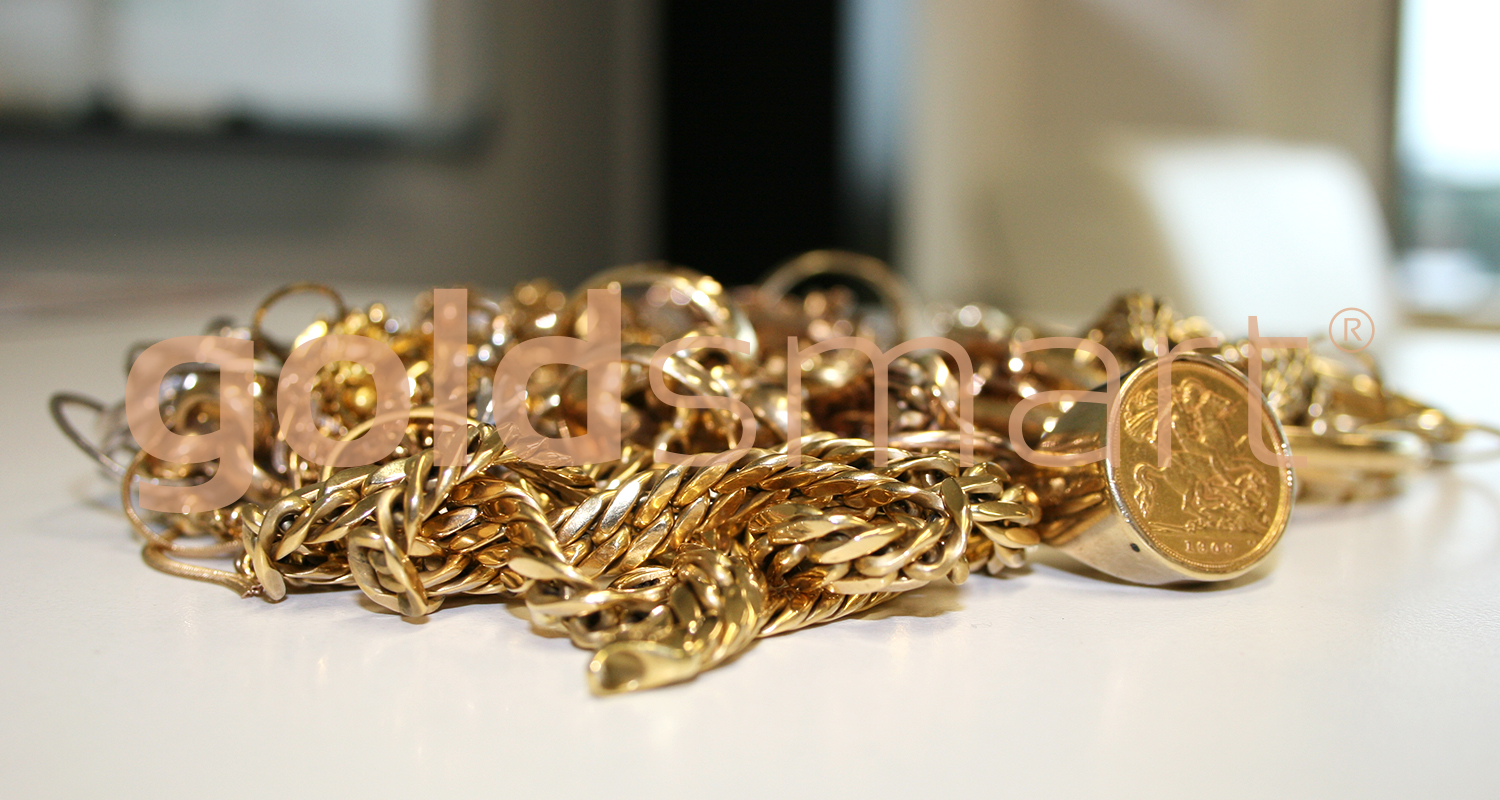
Selling your personal gold in 2021 is a bit like going on a trip and being allowed to find your own personal treasure chest on an island. You go digging through your home, actually find a few items that really qualify as spare gold you can sell, and you look at the price of gold online and realize you have something worthwhile, a real prize. Then, just like the fellow who dug up the chest on the island, the reality hits you. Somehow, you have to figure out how to actually sell that gold without losing your shirt, your hand, or your wits. And there are a lot of pirates and good-for-nothings out there on the high seas of real life looking to separate you from your gold without paying for it.
Personal gold selling actually used to be pretty rare only a few decades ago. Most people just held onto what they had, or they were aware of a discrete service that was in fact a refiner who would buy unwanted gold for a price. It simply wasn’t socially acceptable to be selling one’s jewellery unless a person was in dire financial straits. And then, in those cases, the person had to trudge down to a local pawn shop as there were no respectable firms available to liquidate one’s gold. Granted, there were jewelers who would buy fine jewellery from estate sales, but these were uncommon at best.
Today, thanks to the skyrocketing spot price of gold on the investment market, one can sell gold just about anywhere, in any sizable town and in any country. The demand is so high, there isn’t enough gold going around, which makes buying back second-hand gold a brisk business. Unfortunately, that means there’s also a lot of shady characters looking to take advantage of that activity as well. This guide is intended to give you, the personal seller a clear idea of what to expect, what to avoid, and how to sell your personal gold jewellery safely and profitably. Most importantly, it’s also intended to help you stay safe doing so.
Who are the Gold Buyers
The best place to start involves understanding who the buyers for second-hand gold actually are. Business and firms that regularly work in the gold intake side of the market fall into these categories:
Refiners or consolidators
These businesses are the major players in the second-hand gold recycling side of the business. They bring together multiple lots from other players and often have the equipment and means to manage the smelting process that reduces all the gold items they receive into consolidated form to be recast into gold bars. These businesses then sell the consolidated gold back into the market to industrial buyers who either needed it for jewellery stock, industrial use, or investment bullion. While refiners and consolidators often provide the best pricing for gold, the average person will almost never deal with them as an individual lot is simply too small for what these players are buying. These look instead to other businesses to bring collections together that can be smelted into large amounts of bulk gold in one lot.

Professional gold buyers
This type of business is ideal for a personal seller. A professional gold buyer works as a halfway point between the wide, differing market of many sellers and the consolidators. Many times professional buyers may also be refiners as well. Because they have the wherewithal to handle larger buys but cater to consumers, these businesses will provide a very fair price for gold sold to them and then consolidate that into larger lots with their wide network of sourcing. They are not a fly-by-night operation; professional gold buyers tend to be the most established businesses in the gold recycling market.
Local Jewellery Dealers
Not established to buy gold in the first place, some might delve into the activity when it involves fine jewellery that is recognizable right away or has a documented worth, as well as bullion coins. However, many jewellers are simply going to resell their gold to a refiner or to other customers, and only make a thin profit margin in the process. They are not invested in an ongoing operation. So, when they do buy, jewellery dealers will often have a hefty markup to make it worth their time occasionally buying private gold from consumers.
Pawn Shops, Payday Loan Businesses, and Backstore Venues
These businesses do not focus on gold specifically. They are in business to leverage valuable items from consumers who need cash right away and are willing to sell their items and possessions far lower than what they are worth. All three types of businesses focus on that human behavior to buy gold at discount pricing and then resell it for far more, making a sizable profit doing so. They frequently operate in less-than-stellar neighborhoods and the process is fairly unfriendly right from the start.
Private Buyers, Temporary Visitors, and Gold Parties
Consumers will frequently run into private buyers of all types. These types portray themselves as professional buyers, but they don’t have a business license or address typically, and they almost always operate out of temporary locations. The most common tends to be a gold buyer in town with ready cash and meeting folks at a local hotel to buy any gold available or being the buyer at a gold party hosted by a known local (who gets a fee for hosting the party at their house). Again, the goal here is to take advantage of people’s desire for instant cash and buying their gold at discount prices. Since most people don’t really understand what they have, the buyer waves cash in a fun environment and people fall for it by the dozens every time. There’s no recourse the next day if someone thinks they made a mistake; the buyer has already left town.
Online Buyers
Thanks to the explosion of the Internet connecting people all over the world, selling gold online seems to make a lot of sense. After all, it’s like a giant garage sale but with far more customers showing up to buy things. The problem here is that many consumer sellers are not familiar with how scams can be pulled, making them easy targets for online buyers. The most common fraud is the chargeback method. In this scenario, a buyer pretends to buy a gold item and issues a credit card payment. Sellers go for it when they see the money show up in their online account, and they ship the gold. As soon as it arrives, however, the buyer then issues a chargeback telling his credit card company the payment was not his. The seller loses the money electronically before knowing it, and the buyer has both the gold and his money. Scammer 2 pts, seller 0. This scam is not the only one used, but it has been so successful, it has made selling online high risk on multiple platforms ranging from eBay to Craigslist to many others. Still, people sell gold online regardless every day.

Making Sure Your Gold is Ready to Sell
For the consumer seller, it’s important to understand right from the start one will not be paid the value of the spot market price for gold sold. First, the gold buyer involved needs to make a profit to stay in business. They are not speculators in the sense of buy and hold investing. They don’t buy to sit on the gold for months or years and then sell it when the price has risen further. As a business, they need to move that gold and resell it into the market at a profit to pay for their operations and growth. Because of this, anyone selling gold, even with the best pricing, will be doing so at a discount, period. The trick is to find the right gold buyer who gives the consumer the best price, even with the discounting included. The best price isn’t always the most either. What good is a price if the person is subjected to risk and their safety is threatened or if the transportation cost there and back ends up eating a big chunk of change? In practice, the best price is the one that can be reasonable obtained for the gold being sold without losing cost somewhere else.
Secondly, different second-hand gold will receive different pricing. The main factor has to do with the quality of the gold being sold. 24 carat gold is by all standards the highest quality gold to have and will fetch the highest price closest to the market spot price seen in the news. 10 and 12 carat gold, on the other hand, is the lowest purity due to mixing with other metals for strength and will fetch the lowest pricing possible. Everything else is a range between those two points. Most people don’t consistently buy and receive the same quality gold in everything they have. So, as a result, most personal lots will be a mix of gold, ranging from the lower quality to hopefully the higher end as well. That said, when a number of pieces are being sold, it’s a good idea to know ahead of time what one has and separate them when possible.
For starters, separate the gold that has good identification. Bullion coins, for example, are typically issued by a government and have their quality and weight stamped on them. That makes these items easy to evaluate and separate. Next, look for fine jewellery that has hallmarks or quality marks on them. These will be visible in both a maker’s mark as well as numeric code. Sometimes the number will be a 900 series code and other times it will be more obvious as 14k or 20k. Group these gold items together as they have similar gold quality per the numbers. Finally, the remaining gold you have that has no label, documentation, or identifiers should be group in a miscellaneous pile separate from the rest. This oftentimes includes gold received as a gift. By doing this separation process, you have both a decent idea of what kind of gold you have as well as making it a bit easier for the buyer to work through your lot efficiently. All the gold will be tested as that’s a basic requirement in the industry, but the selling process will move along a lot faster instead of working with a mixed up jumble of gold pieces.
Next, remove any gold items with inlaid stones. Gold buyers generally do not provide precious stone purchasing as that involves an entirely different market altogether. Further, precious stones don’t mix with gold that will ultimately be melted and consolidated. So, gold buyers won’t pay for these pieces; they are simply too complicated for the typical second-hand gold process to take in given the variety of stones possible.
Don’t mix your metals. If you are hoping to sell other precious metals in addition to gold, which some buyers will take. Keep those items separate from your gold. Silver and palladium items should be kept in their own bags and containers and not mixed in with everything else being brought to the buyer.
Finally, watch out for gold-plated jewellery, flatware, and similar. While most people tend to keep their real gold separate from gold-plated items, it can be a bit more confusing if you’re pulling together second-hand gold that you’re not familiar with, such as gold received in an estate, for example. Gold-plated items are not acceptable and will be rejected. There are very easy ways to test for it, and it will make for an awkward situation when meeting with a gold buyer. Additionally, some gold jewellery will have a stamp on them such as “GP,” signifying the fake status of the precious metal appearance and the base metal inside.

Look for a Professional Buyer with a Solid Reputation
Probably being the most important last step to take before selling your gold, research the gold buyer business you are going to work with. Reputable gold buyers have been in the market for a long time with a well-established reputation for buying gold and providing customers their services. The best ones will provide fair pricing, provide a safe environment for selling gold, and will walk consumers through the process without hidden fees or transaction charges. There shouldn’t be any kind of high-pressure tactics being used to make a sale happen. Professional buyers fully understand and expect some sellers will have memories and attachments to pieces and decisions can change at the last second as a result.
A clear winner every private seller should consider is Gold Smart. Having served thousands of customers over the last ten years at least, Gold Smart provides a place to transact and sell unwanted gold, as well as a buyer channel that provides a fair and transparent buying process for all gold items based on a percentage of the current market pricing. More buyers opt for Gold Smart in New Zealand than any other choice for selling personal gold because we make the process so convenient with service, safety, and clarity. Find out for yourself. Schedule an appointment, follow our guide steps above, and let us give you a full review and price for your items. You’ll be pleasantly surprised.